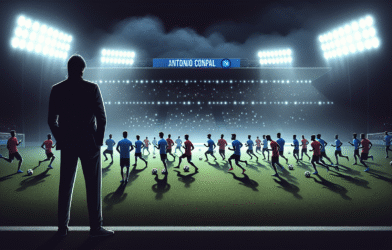Subtotal $0.00
Match context and result
Overview
The Tottenham Bodø/Glimt draw underscored how European nights can surprise even a club of Spurs’ stature. Tottenham controlled long spells, seeking to assert authority in the group. Bodø/Glimt defended with discipline and struck on the counter when opportunities appeared. The result leaves both teams with work to do in the race for progression, and it injects tension into the remaining fixtures. Guardian coverage frames the night as a sting for Spurs but a carefully earned point for Bodø/Glimt. The draw also reinforces the reality that margins in Europe are razor-thin and momentum can swing on small details. Tottenham Bodø/Glimt draw became the headline, but the story runs deeper than the scoreline.
Tottenham began with intent, aiming to grab early control and repeatedly probe the box. Bodø/Glimt, while disciplined, looked to frustrate and strike back when spaces opened. The balance of play suggested Spurs had more of the ball, but finishing and cutbacks did not match the buildup. As the night wore on, the draw felt like a fixture that would shape the group’s narrative, reminding everyone watching that European campaigns test every facet of a squad.
What happened on the pitch
Key passages and turning points
From the kick-off, Spurs dictated tempo, probing the final third with patient, precise passing. The approach yielded several promising passages, and the crowd sensed a potential breakthrough. Bodø/Glimt absorbed pressure, resisted the temptation to overcommit, and offered sharp counter-attacks when Spurs pushed numbers forward. The defensive line stayed alert, routinely blocking crosses and closing passing lanes. The match flowed in waves, with one clear chance after another, but the finishing touch eluded Tottenham on several occasions.
Incisive moments defined the evening. Bodø/Glimt exploited gaps on the break, forcing a couple of hurried clearances and a timely save at the near post. Tottenham’s creativity remained evident, yet the end product repeatedly faltered—either blocked by a defender, saved by the keeper, or drifted narrowly wide. The mood swung with each transition, highlighting how a compact, well-drilled away side can frustrate a superior opponent. The phase-shifted tempo made clear that European football rewards patience and decisiveness in the same breath.
Spurs’ performance and finishing
Finishing touches and decision-making
Tottenham produced fluid sequences, moving the ball quickly and creating space in the box. Yet the finishing touch often evaded them. Several shots were blocked or diverted, and a few other attempts found the gloves of Bodø/Glimt’s goalkeeper. The lack of a clinical finish dampened what was otherwise a show of creative quality in the build-up. This is the area Spurs will urgently revisit in training, aiming to convert routine chances into goals more consistently.
Analysing the final third, Tottenham must refine timing and angles. A committed cross here or a sharper through-ball there could convert pressure into a positive result. In the longer view, the Tottenham Bodø/Glimt draw exposes a recurring theme: control of possession is not enough without ruthless efficiency in the box. The team will need to pair better shot selection with smarter runs to convert chances when they matter most.
Bodø/Glimt’s defensive plan and moments
Discipline and opportunism
Bodø/Glimt defended with notable discipline, denying Tottenham crosses and stifling the supply lines into the penalty area. The setup was compact, with quick recoveries and well-timed challenges that kept Tottenham from gaining the necessary momentum. When Spurs did break through, Bodø/Glimt’s goalkeeper and back line were ready, turning potential goals into routine saves or clearances. This defensive resilience proved decisive in an evenly matched contest.
The visitors also used moments to punish spaces on the counter. A few swift transitions exposed gaps in midfield and produced dangerous forays toward the byline. Bodø/Glimt’s counters, though not abundant, came with accuracy and pace, reminding Spurs that a European night equals both sustained pressure and lethal opportunism on the break. The away side will take confidence from that resilience as they prepare for forthcoming fixtures.
Impact on Tottenham’s European campaign
Standings, momentum and pressure
The draw tightens the race in a competitive group. Tottenham must maximize points in their remaining games to progress, which intensifies the mental and tactical pressure on players and staff. The result adds weight to every subsequent fixture, forcing a careful balance between domestic duties and European responsibilities. In this context, Tottenham Bodø/Glimt draw serves as a reminder that league form alone does not guarantee a smooth pathway in Europe. Spurs will need clear planning and sharper execution in front of goal if they are to advance.
For Bodø/Glimt, the point offers a valuable platform to build confidence and momentum. The performance demonstrated that a disciplined, well-organized approach can frustrate even bigger rivals and yield results on the road. Their approach could influence how they handle future fixtures, leaning on solid defence and rapid counter-attacks to claim more points as the group progresses. Analysts will likely highlight the significance of this away point in shaping group dynamics.
Next fixtures and implications
Outlook and strategic adjustments
Ahead of the upcoming schedule, Tottenham now targets fitness, efficiency, and clarity in the final third. Training will focus on finishing routines, movement patterns, and decision-making under pressure, with an eye on reducing wasteful touches in front of goal. The calendar demands a careful management of resources as Spurs juggle league commitments with European ties. The Tottenham Bodø/Glimt draw thus becomes a turning point in strategic planning for the rest of the campaign.
For Bodø/Glimt, the emphasis will be on maintaining defensive discipline while seeking additional counter-threats. Their ability to absorb pressure and strike at speed will shape their approach in future matches. As the group phase progresses, both teams will reassess personnel, formations, and spacing to optimize outcomes. Fans and analysts will monitor how this point translates into momentum or pressure in the weeks ahead.
















